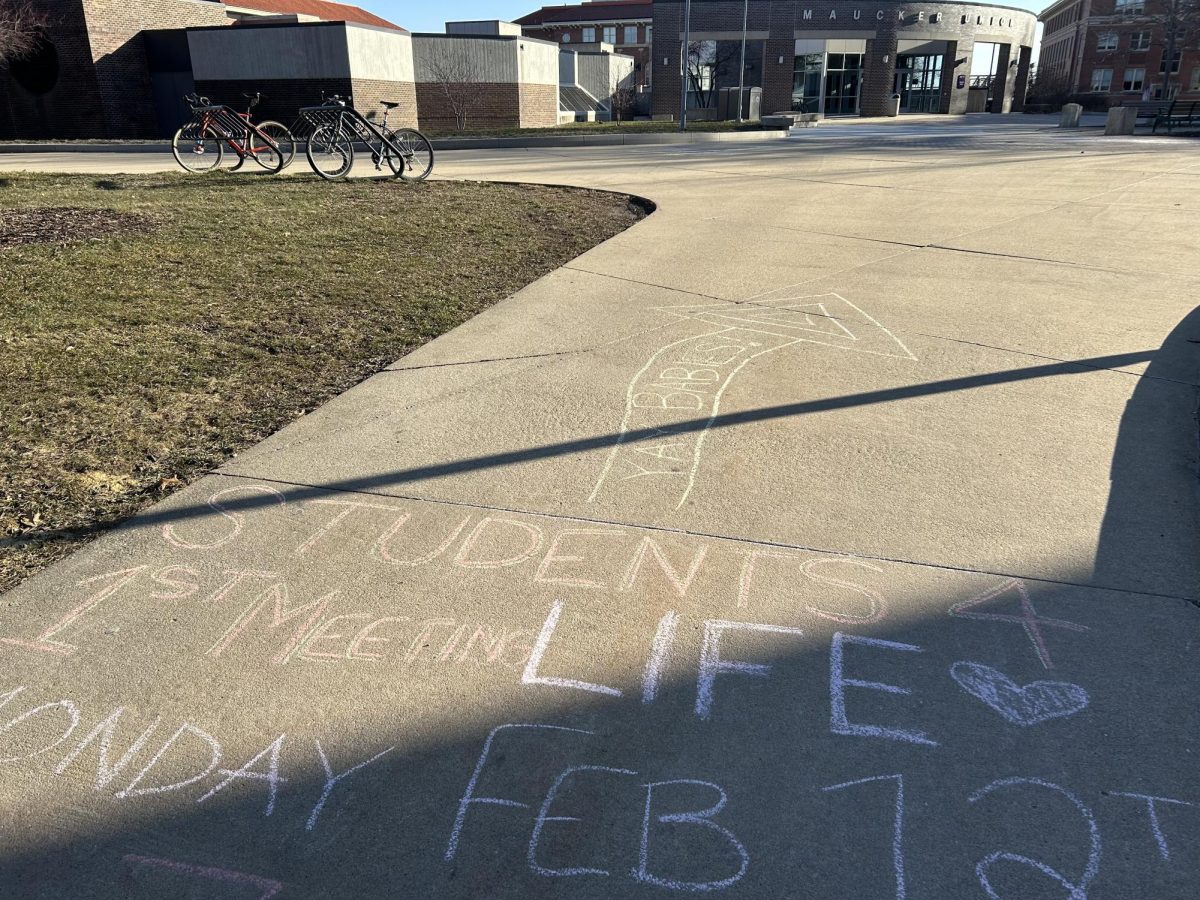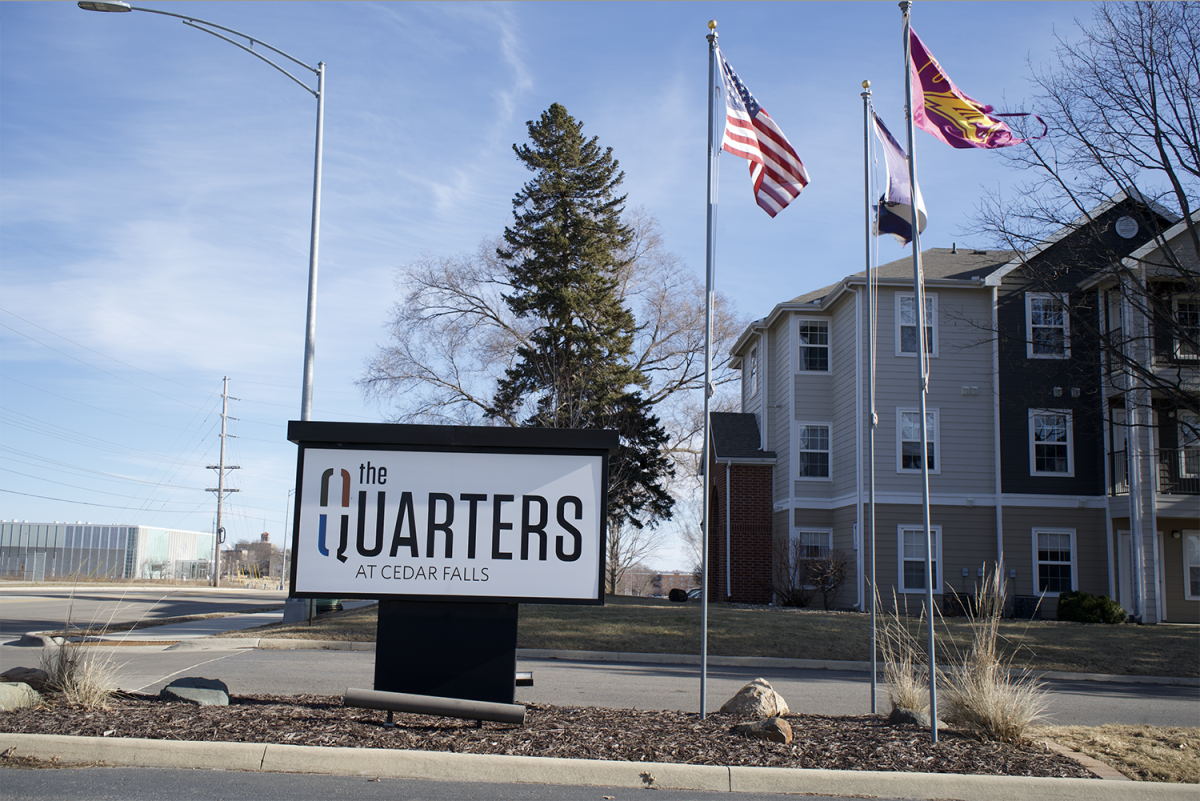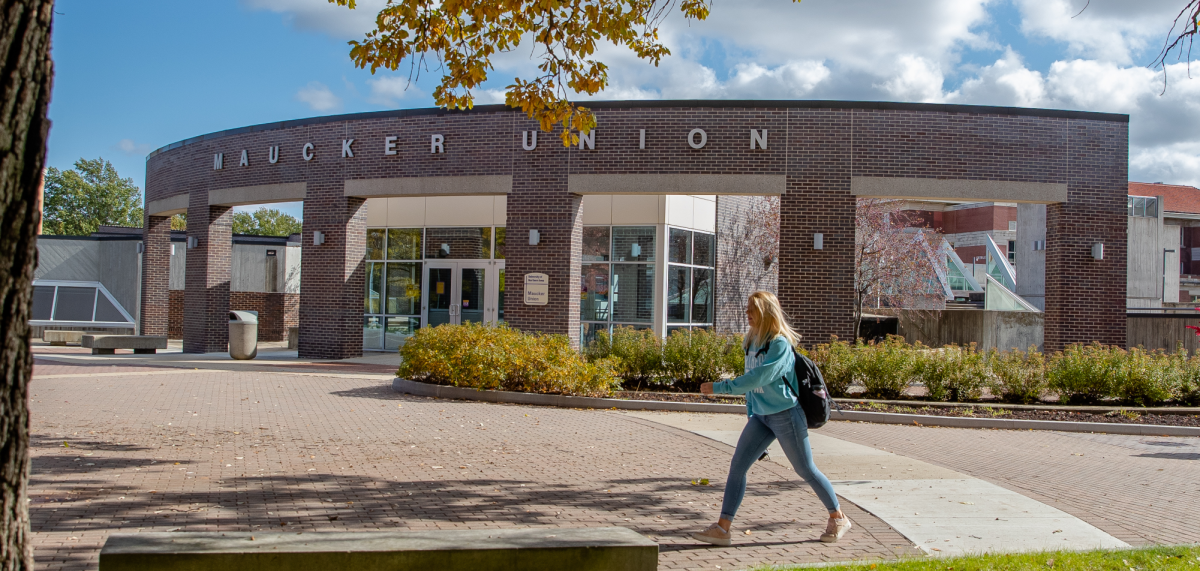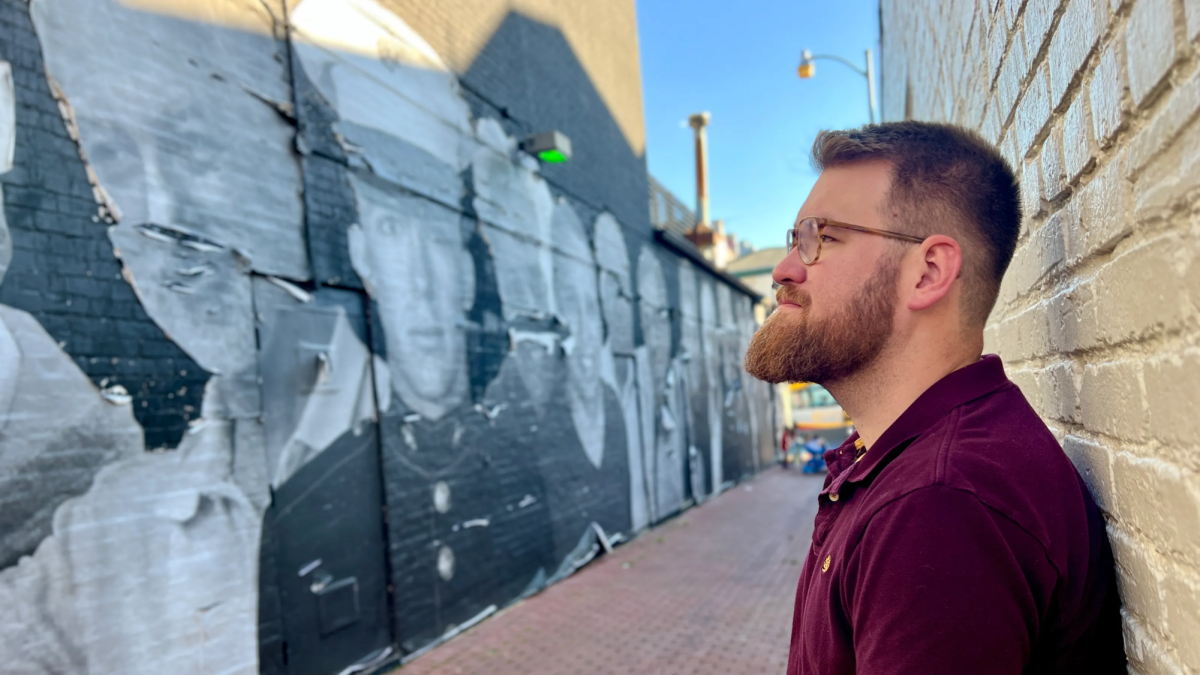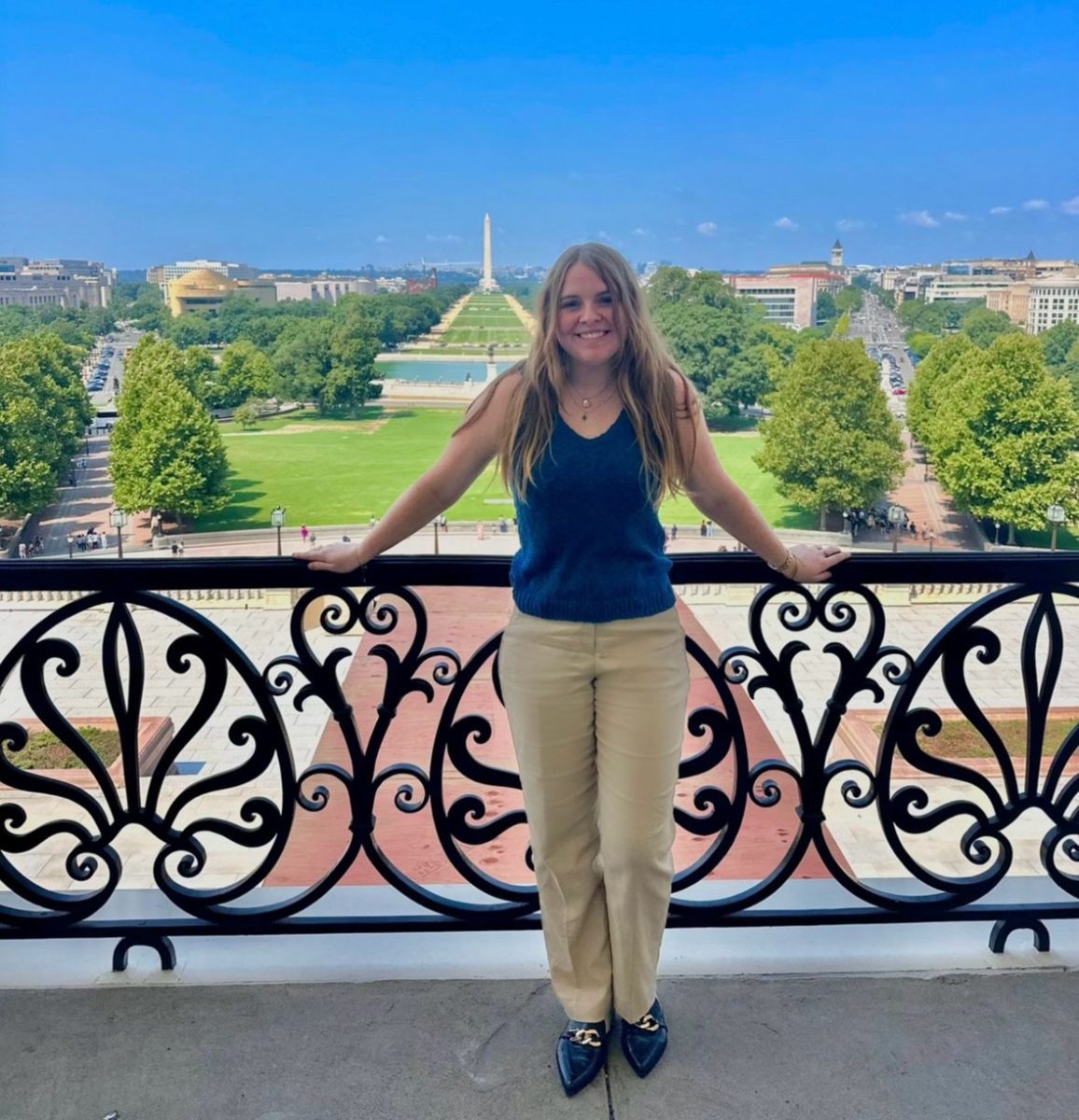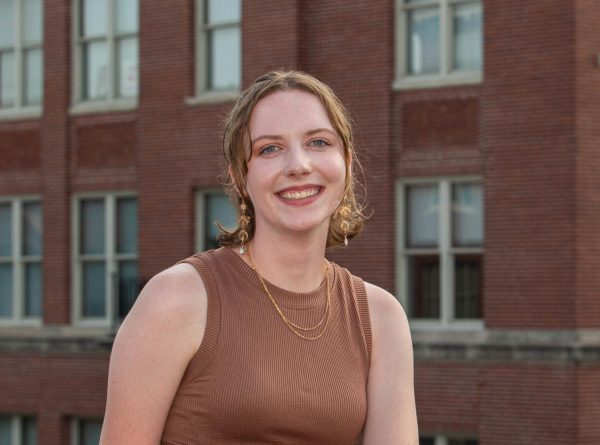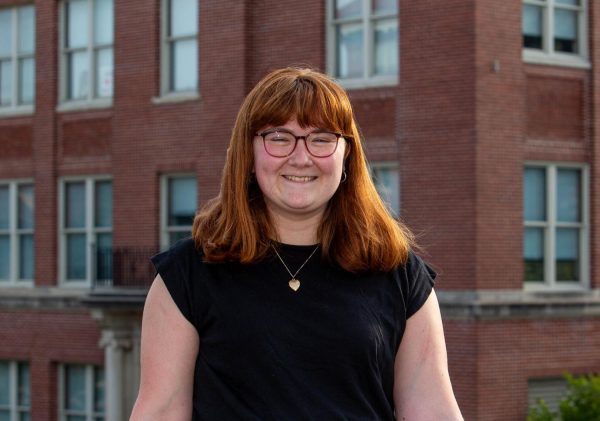The revival of a student organization is sparking conversation on campus about reproductive rights and abortion.
The organization, Students for Life, was inactive last semester, but freshman social work and criminology major Macy Evans decided to step in and restart the organization.
“I took this on because I’ve always had a place in my heart for babies and I really believe that all human beings have intrinsic values in their lives,” Evans said. “I think it’s really important that we preserve the sanctity of life, and we teach people you know about what resources are out there.”
According to their website, Students for Life is “a pro-life group dedicated to abolishing abortion and cultivating a culture of life.” The organization is a national nonprofit that has formed groups of high school and college students around the country.
Natalie Heupel attended their first meeting of the semester on Monday, along with around 20 to 30 people. Despite rumblings of protests, there were no apparent protesters in attendance. Heupel said she attended the meeting to show her support for the organization.
“It is important to stick up for something like this. I think that we really need it here because we have tons of other clubs and I feel like this needs to be supported too,” she said.
The revitalization of the club has prompted student response, some of them expressing concern over the rhetoric Students for Life pushes on their platforms.
Hattie Dukes is a senior majoring in community health and is currently interning at Allen Women’s Health. She is also the president of UNI Women in Healthcare and emphasizes her opinions do not reflect those of her club.
From a public health standpoint, Dukes said one of her concerns is Students for Life’s stance on birth control, in which they state on their official website, “We have a responsibility to address birth control because it plays a significant role in the supply and demand for abortion – in addition to causing abortions itself.” She said this rhetoric is troubling from her perspective in healthcare.
“I just raise the question, what do we do then? What do we do when people find (birth control) morally wrong? That scares me a little bit. And then if we’re left with relying on abstinence, that is a lot to ask the tens of millions of people in the U.S. who are of reproductive age.”
She continued, “I worry what would happen if we abolish abortion. You have to ask yourself the question, ‘What is our next risk?’ When we take away all these options for people, we can’t create the conditions and communities in which people can thrive.”
Archer Trip, a queer activist on campus, said he hopes more queer voices can be heard regarding the issue of abortion.
“From an LGBTQ+ lens, politics have already shut out queer folks from this debate,” Trip said. “Even as recently as yesterday, I was at our capital rallying for the right to be considered anything other than biologically female or biologically male according to the law. We are at this point where people can’t even begin to join the fight for the rights of their bodies when legally we might not be recognized to begin with.”
One student, who preferred to remain anonymous, attended the Student for Life meeting on Monday expressing their support for the organization’s mission, saying they want to protect life.
“I’m here because I think the unborn are the most vulnerable among our society. And it’s been a really big issue in the U.S. We’ve lost so many millions of babies and they are worthy of life, no matter what stage they’re in. I just think that especially on a college campus, it’s important to get this across.”
Bella Markley, a junior majoring in social science teaching, takes a pro-choice stance and thinks “religion has seeped into our politics.”
She continued, “You know your body best. It’s up to no one else. This is my body, not yours. In terms of consent as well, this a huge thing that I think pro-life people struggle with. Banning abortion will take away a lot of bodily autonomy from a lot of people.”
Emma Brennan, a finance major, said she attended the Students for Life meeting because the topic of abortion is something she feels strongly about.
“Once I became aware of the stats around (abortion), it was something that I totally believe in wholeheartedly,” Brennan said. “Last night was the Super Bowl and the Students for Life Instagram account posted that the stadium where the Super Bowl was held fit 65,000 people and the number of children that have been killed by abortion since Roe v Wade was passed in 1973 would fill over 1000 of those stadiums. Preborn lives are the most vulnerable in our society and it’s up to us to protect them and give them a voice.”
Anna Singelstad, a social work major and vice president of Northern Iowa Feminists, said she believes there is common ground in the debate about abortion.
“I do think between the two sides there should be a common goal of providing resources providing health care services that prevent unwanted pregnancies from happening in the first place,” Singelstad said. “I think that that’s something that sometimes gets lost, and there should be this common goal of providing more resources.”
Another student who preferred to remain anonymous attended the Students for Life meeting, and said they felt many do not understand the pro-life perspective.
“I would say I’m here because I think a lot of people don’t have a good understanding of what pro-life means, and that’s from conception to natural death. And I think every life should be thoughtful and shouldn’t be overlooked.”
While the debate about abortion remains contentious, Dukes said healthcare providers must “treat patients with the respect they deserve,” regardless of beliefs.
“The bottom line is this student organization can push for abolishing abortion all they want, and they might get the right people in office to succeed. However, women will always find a way to make the healthcare decisions that they need,” Duke said. “Women are resourceful and will find a way. You can only ban safe abortions.”
She continued, “I think a student organization at UNI will not and cannot stop women from making the healthcare decisions that are best for them. And quite frankly, no one has any business concerning themselves with other people’s healthcare choices. It’s a deeply personal and emotional and difficult journey. I just don’t understand why we feel the need to interject ourselves in other people’s choices.”


